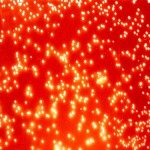Lien vers Pubmed [PMID] – 32209717
Lien DOI – e00386-1910.1128/mSystems.00386-19
mSystems 2020 Mar; 5(2):
Genomics-based population analysis of multidrug-resistant (MDR) Klebsiella pneumoniae motivated a renewed interest on the capsule as an evolutionary and virulence marker of clinically relevant strains. Whole-genome sequencing (WGS)-based approaches have provided great insights into the genetic variability of the capsular locus, but genotypic-biochemical capsular (K)-type correlations are lacking, hindering the establishment of a reliable framework for K-type characterization and typing. To fill this gap, we combined molecular, comparative genomics, and multivariate data analysis tools with biochemical data on the capsular locus to support the usefulness of Fourier transform infrared (FT-IR) spectroscopy as a reliable K typing tool. To validate our approach, we used a representative collection of well-defined MDR K. pneumoniae lineages involved in local or nationwide epidemics in multiple countries. With this, we demonstrate a high accuracy and resolution of our FT-IR-based spectroscopy approach for K-type discrimination that is even higher than that provided by WGS. Moreover, the specific associations established between certain K types and specific K. pneumoniae lineages with high clinical relevance, together with the accuracy, simplicity, short time to result, and inexpensive features of the method, support the value of the developed FT-IR-based approach for an easy, fast, and cost-effective strain typing. This fulfills a still unmet need for tools to support real-time monitoring and control of K. pneumoniae infections. In addition, the genotypic-biochemical correlations established provide insights on sugar composition/structure of newly defined K. pneumoniae capsular types.IMPORTANCE Klebsiella pneumoniae is nowadays recognized as one of the most defiant human pathogens, whose infections are increasingly more challenging to treat and control. Whole-genome sequencing (WGS) has been key for clarifying the population structure of K. pneumoniae, and it is still instrumental to provide insights into potential pathogenicity and evolutionary markers, such as the capsular locus. However, this information and WGS are still far from being accessible and translated into routine clinical microbiology laboratories as quick and cost-efficient strain diagnostic tools. Here, we propose a biochemical fingerprinting approach based on Fourier transform infrared spectroscopy (FT-IR) and multivariate data analysis tools for K. pneumoniae capsular typing that, because of its high resolution, speed, and low cost, can be an asset to provide enough information to support real-time epidemiology and infection control decisions. Besides, it provides a simple framework for phenotypic/biochemical validation of K. pneumoniae capsular diversity.

